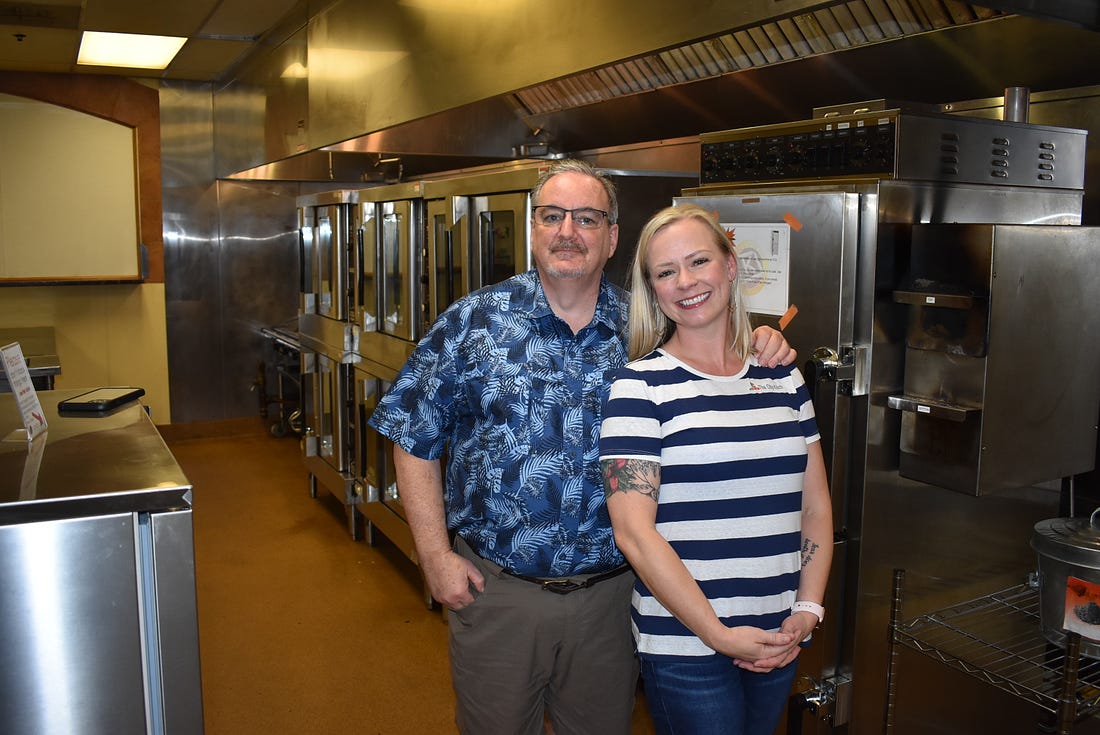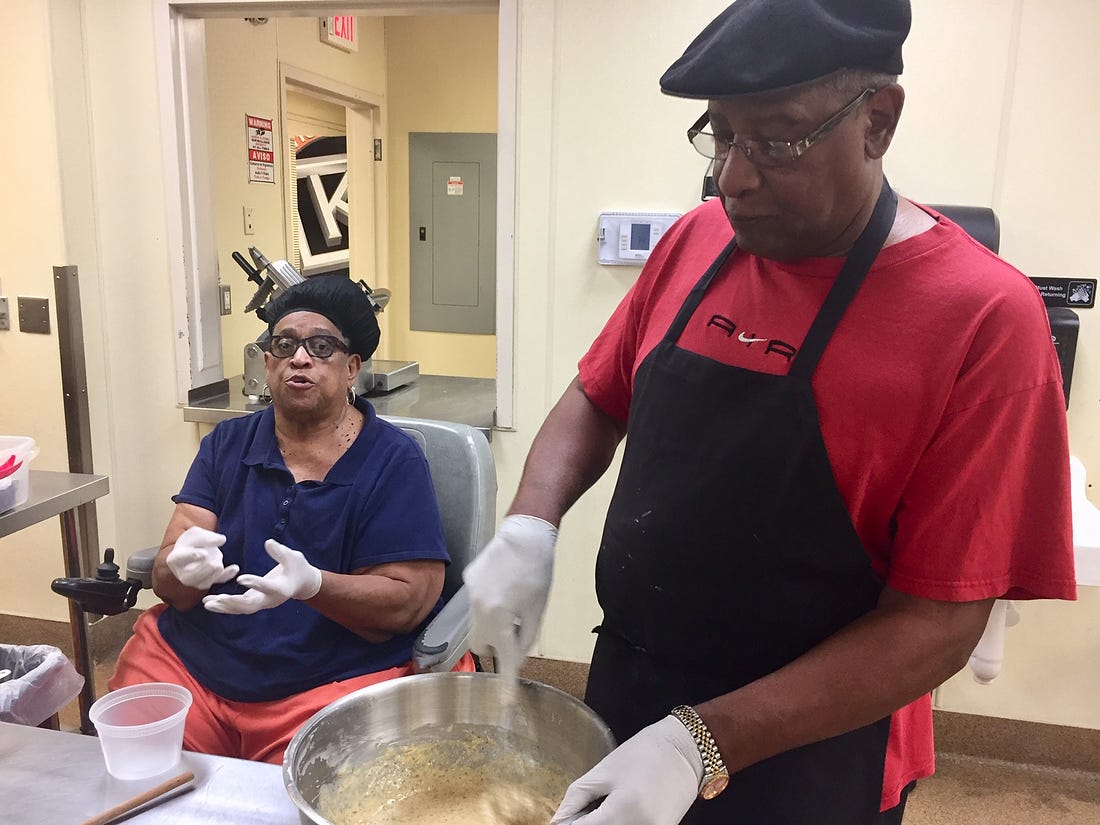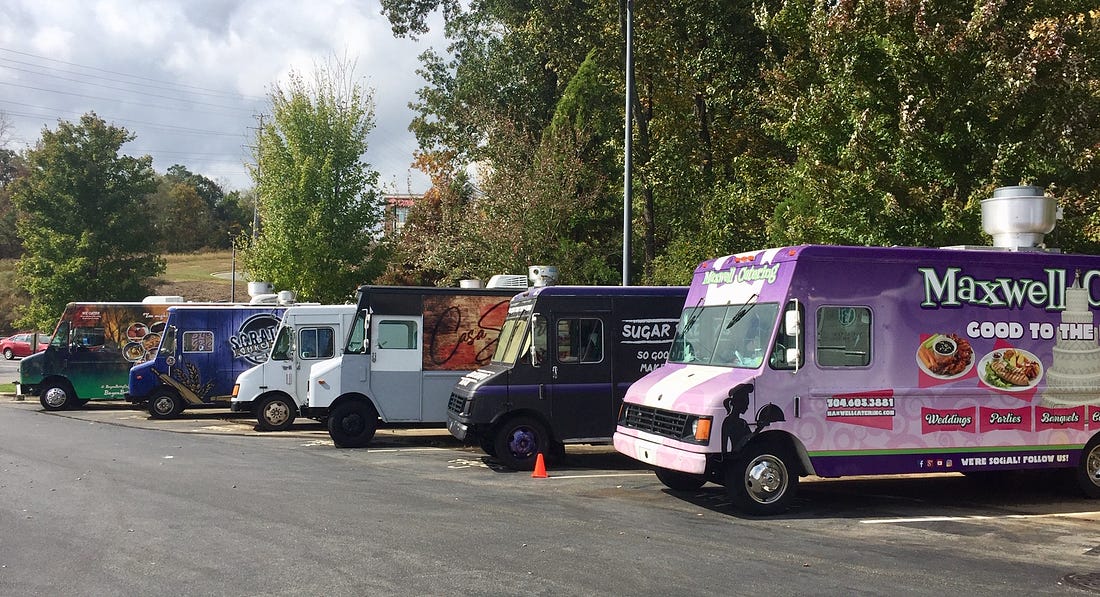How a food-truck kitchen pushed Charlotte to change the law
Like breweries and scooters, growth of commercial kitchens led to ordinance change; BB can make her crab cake mix

Dave Hegnauer remembers when he first received a violation notice from Charlotte’s code enforcement division last year, and he wasn’t pleased. For four years, out of a 13,000-square-foot former K&W Cafeteria building on Mallard Creek Church Road in University City, Hegnauer had been running The City Kitch, which rents kitchen space to food trucks and caterers.
Although his kitchens repeatedly passed inspections from the county health department, city code enforcement was alleging that zoning rules didn’t allow The City Kitch to operate in the strip shopping center where it is located — even though the site used to be a restaurant. That interpretation threatened to put him out of business.
But rather than fight the citation, Hegnauer took a different approach. With his business planning to expand into other areas of Charlotte, he suggested the city change the law. “Rather than just bitch about the fact that they sent us a zoning violation after we’ve been in business for a few years, we said, ‘Heck, we’ve got a good attorney. Let’s see if we can get it changed.’”
Last month, he won. After months of hearings and meetings, the City Council voted unanimously to change the ordinance, create a definition of a commercial kitchen and clarify that they’re legal in a wide range of business zoning classifications. And Hegnauer is off the hook for his old citation. Changes to city zoning laws almost never originate from residents. “It was kind of a unique situation,” says Laura Harmon of the city’s planning department.
The article continues below
—
Note: This article first appeared in the Nov. 13, 2019, edition of the Charlotte Ledger, an e-newsletter focused on local business news. Sign up for free here:
—
Keeping pace with business: Hegnauer’s saga illustrates how emerging business trends can sometimes move faster than city ordinances and regulations. In recent years, Charlotte has changed its ordinances to adapt to a string of new industries, from microbreweries to e-scooters to ride-hailing services such as Uber and Lyft.
At the public hearing in July, council member Braxton Winston told Hegnauer: “We have been playing catch-up with this whole food truck industry. I just wanted to recognize that you saw a problem or something that is lacking within a regulation or the way we are enforcing government, and it seems like instead of kicking and screaming for somebody else to fix it, you are stepping up to the plate to work with us and figure out a solution, not just for yourselves, but for the city to move forward.”
Commercial kitchens — also known as commissary kitchens or shared-use kitchens — are a growing industry around the country, as food trucks and food-delivery services take off. They’re like a WeWork for chefs: They allow fledgling entrepreneurs or amateur cooks to try their hand at running a food business without a lot of expense. Clients can rent space at The City Kitch starting at less than $1,000 a month.
Expansion on the menu: The company is planning new locations in west Charlotte on Thrift Road off Freedom Drive and in Greensboro. There are a few competitors in town, including Carolina Commercial Kitchen on Latrobe Drive near the Home Depot on Wendover Road, but Hegnauer says there’s plenty of work for everybody.
The City Kitch has 45 active clients that rent one of its 10 shared kitchens or pay more to rent one of nine private prep spaces. Businesses using the kitchens, which are available 24 hours a day, include 29 food trucks, a company that delivers healthy meals, a bakery that specializes in desserts created with alcohol and a guy who makes pickles.
On a recent weekday morning, Brenda Bivins, owner of BB’s Homemade Krab Cake, was mixing some mayonnaise, parsley, eggs and other ingredients for a mix that she sells every Saturday at the Charlotte Regional Farmers Market. She moved to Charlotte from Maryland and was astonished that she “couldn’t find a decent crab cake.” One night, the idea hit her: “Don’t sell the crab cake, sell the mix.” Even small operators like Bivins can’t legally prepare food for sale at home, so renting kitchen space makes their businesses possible.

“We’re able to help them get started without huge overhead,” said operations director Dana Winstead, as she walked by another part of the kitchen where there were big baskets filled with onions, celery and bell peppers.
Hegnauer, who worked at a car dealership in Cornelius before meeting his wife, a Johnson & Wales instructor, said he’s happy to put the conflict with the city behind him and focus again on expanding the business. Or at least he was, until he received his bill from the lawyer he hired to press his case with the city.
“We said, ‘Let’s see if we can work together and resolve it, and we did — other than the fact that it cost me more than I expected it to.”


